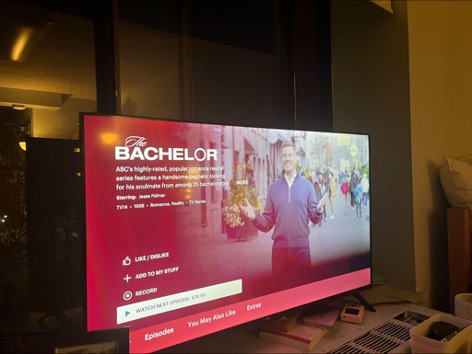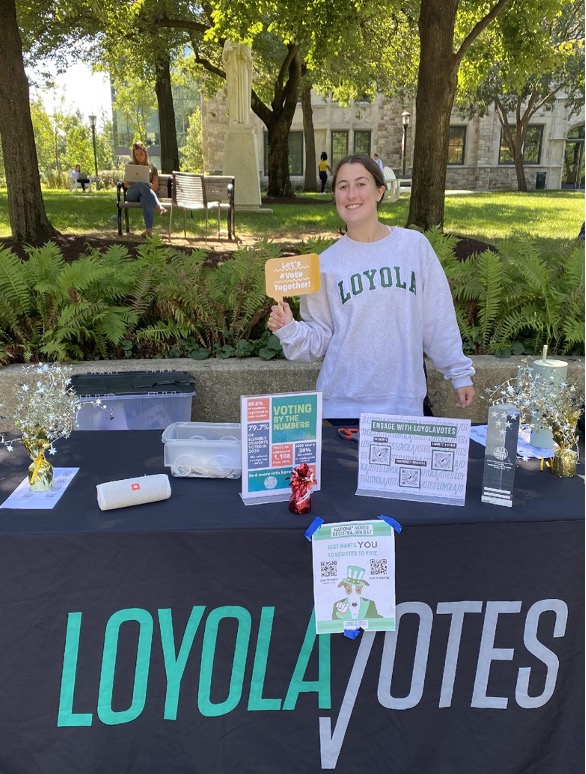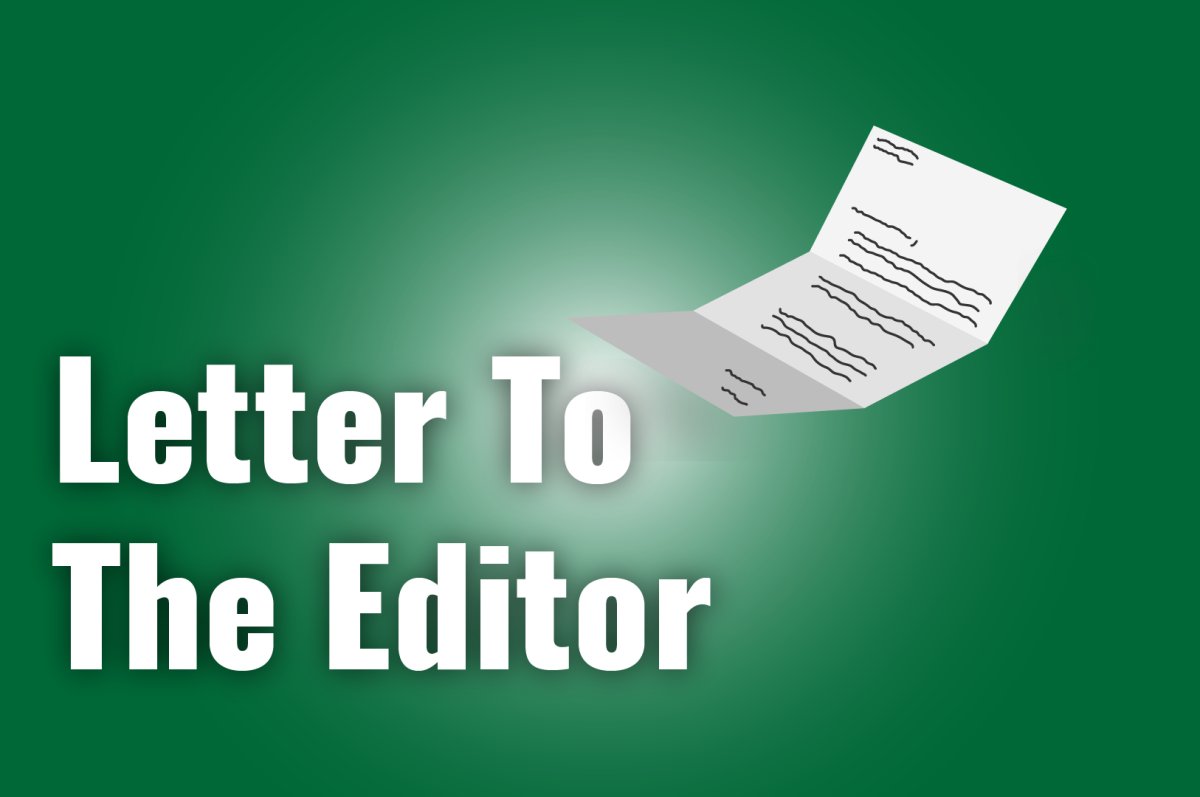The following does not represent the views of Loyola University Maryland, the Greyhound, or Loyola University’s Department of Communication.
As two seniors in college do on a random Saturday night in January, we came up with the idea for a professor’s bookshelf project and decided to go for it. In awe of our professors over the past four years and with a genuine interest in gaining book recommendations, we explored this little library project. It has been so fun and exciting for us to collect these book lists from such a wide range of professors and discuss the meaning behind their favorite books! We hope you are able to get more than a few good recommendations from this list, so, without further ado, here are 120 book recommendations from your favorite professors across the university. Enjoy!
Dr. Mavis Biss, Associate Professor of Philosophy
- Carolyn Heilbrun, “Writing a Woman’s Life” (1988)
- “We women have lived too much with closure… This is the delusion of a passive life. When the hope for closure is abandoned, when there is an end to fantasy, adventure for women will begin.”
- Alexander Nehamas, “On Friendship”
- D.J. Waldie, “Holy Land”
Dr. Kerry Boeye, Medieval Studies Minor Coordinator, Associate Professor of Art History
- James Baldwin, “Another Country”
- Italo Calvino, “If on a Winter’s Night a Traveler”
- Alan Moore and Dave Gibbons, “The Watchmen”
- Shirley Jackson, “The Haunting of Hill House”
- Seamus Heaney, “Poems, 1965–1975: Death of a Naturalist, Door into the Dark, Wintering Out, North”
Rev. Timothy Brown, Associate Professor of Law and Social Responsibility
- Harper Lee, “To Kill a Mockingbird”
- Anne Frank, “The Diary of a Young Girl”
- Thomas Merton, “The Seven Storey Mountain”
- The Bible
- F. Scott Fitzgerald, “The Great Gatsby”
Professor Gregory Corrigan, Affiliate Instructor of Marketing
- Stephen Few, “Show Me the Numbers”
- James Collins, “Good to Great”
- Dale Carnegie, “How to Stop Worrying and Start Living”
- Dale Carnegie, “How to Win Friends and Influence People”
- Ayn Rand, “Atlas Shrugged”
Dr. David Binkley, Professor and Director of CS Graduate Program
- Robert A. Heinlein, “Stranger in a Strange Land”
Dr. Nguyen Ho, Assistant Professor of Computer Science
- Russ Harris and Steven C. Hayes, “The Happiness Trap: How to Stop Struggling and Start Living, A Guide to ACT”
Dr. Robert Kenyon, Assistant Professor, Director of Undergraduate Data Science
- Alvin Toffler, “Future Shock”
Professor John Nweke, Assistant Teaching Professor
- Chris Oyakhilome, “The Power Of Your Mind: Walk In Divine Excellence And Transform Your World through The Power Of A Renewed Mind”
Dr. Megan Olsen, Associate Professor and Chair
- Virginia Eubanks, “Automating Inequality”
- “This book highlights the ways in which computer systems have been created to perpetuate unfair practices, often against poor people.”
- Ijeoma Oluo, “So You Want to Talk About Race”
Dr. Henrique Rocha, Assistant Professor
- Douglas Adams, “Hitchhiker’s Guide to the Galaxy”
- “A comedy science fiction book that is meant to be satire about the crisis happening on Earth related to biodiversity loss, climate change, and other related issues.”
Professor Marion Davidson, Assistant Teaching Professor, Forensic Science
- Caitlin Doughty, “Smoke Gets in Your Eyes, and Other Lessons from the Crematory”
- Tessa Miller, “What Doesn’t Kill You: A Life with Chronic Illness”
- “ I would recommend everyone read this book, but especially those who have a loved one with a chronic illness. If you don’t have a personal experience, I think it can be almost impossible to fully understand how it changes your life.”
Dr. Bret Davis, T.J. Higgins S.J.,Chair in Philosophy, Professor
- “ The Complete Works of Chuang Tzu”
- Edited by Samuel Berchholz and Sherab Chödzin Kohn, “The Buddha and his Teachings”
- Zen Sourcebook: “Traditional Documents from China, Korea, and Japan”
- Kitaro Nishida (Japanese: Nishida Kitarō), “An Inquiry into the Good”
- Keiji Nishitani (Japanese: Nishitani Keiji), “Religion and Nothingness”
Dr. Juniper Ellis, Professor of English
- Angie Thomas, “The Hate U Give”
- Alice Walker, “The Color Purple”
- Maia Kobabe, “Gender Queer”
- Nikki Grimes, “Bronx Masquerade”
- Akwaeke Emezi, “Pet”
Dr. Melissa Girard, Associate Professor of English
- Jane Austen, “Pride and Prejudice”
- Emily Dickinson, “The Complete Poems of Emily Dickinson”
- José Saramago, “Blindness”
- “This is an extraordinary work that terrified me and also sparked my love of speculative and dystopian fiction.”
- Toni Morrison, ‘Beloved”
- Claudia Rankine, “Citizen”
- “ Rankine will change your perspective on what it means to be an American.”
Dr. David Gordon, Assistant Teaching Professor of Philosophy
- Homer, “Iliad”
- Eric Lax, “The Mold in Dr. Florey’s Coat: The Story of the Penicillin Miracle”
- Arthur Herman, “The Cave and the Light: Plato vs Aristotle and the Struggle for the Soul of Western Civilization”
- Adam Rutherford, “A Brief History of Everyone Who Ever Lived: The Stories in our Genes”
Dr. Rachel Grover, Director of Undergraduate Program in Psychology Professor
- Barbara Kingsolver, “Demon Copperhead”
- Colson Whitehead, “The Nickel Boys”
- Octavia Butler, “Parable of the Sower”
- Arlene Blum, “Annapurna: A Woman’s Place”
- Robin Wall Kimmerer, “Braiding Sweetgrass: Indigenous Wisdom, Scientific Knowledge, and the Teachings of Plants”
- “I learned about our connection with nature from a Native American and Western European perspective.”
Dr. Nina Guise-Gerrity, Assistant Teaching Professor of Philosophy
- Marguerite Duras, “The Lover”
- Andre Gregory and Wallace Shawn, “My Dinner with Andrea”
- Rainer Maria Rilke, “Letters to a Young Poet”
- De Saint-Exupery, “The Little Prince”
- Lou Andreas-Salomé, “You Alone are Real to Me”
Dr. David Hoe, Associate Professor of Engineering
- Hal Lindsey, “The Late, Great Planet Earth”
- The Bible
- C.S. Lewis, “Mere Christianity”
- Douglas Hofstadter, Gödel, Escher, “Bach: An Eternal Golden Braid”
- “A fascinating book that discusses art, music, and mathematics, and the prospects for artificial intelligence. It has inspired me to think more deeply about the relationship between science and faith.”
- Orson Scott Card, “Ender’s Game”
Dr. Margarita Jácome, Associate Chair of Student Issues, Professor of Spanish, Director of Latin American and Latino Studies Program
- Gabriel García Márquez, “Twelve Strange Pilgrims”
- Harriet Beecher Stowe, “Uncle Tom’s Cabin”
- Eduardo Galeano, “The Open Veins of Latin America”
- Juan Ramón Jiménez, “Platero and I”
- Domitila Barrios, “Let me Speak!”
Dr. Derek Kendig, Associate Professor of Biology
- Kazuo Ishiguro, “Klara and the Sun”
- Delia Owens, “Where the Crawdads Sing”
- Bill Bryson, “A Walk in the Woods”
- Anthony Doerr, “All the Light We Cannot See”
- Mary Roach, “Stiff”
Dr. JP Krahel, Professor of Accounting, Department Chair
- Shel Silverstein, “The Giving Tree”
- Timothy Zahn, “Heir to the Empire”
- Frank Herbert, “Dune”
- “Everything is connected if you’re willing to look deep enough, and leadership is a burden that must be handled with the greatest of care.”
- Cormac McCarthy, “The Road”
- John Milton, “Paradise Lost”
- “Probably my most controversial choice, but this book taught me that if thinking for yourself makes you a sinner, maybe you don’t want to be a saint.”
Dr. Andrea Leary, Professor of Writing
- Archbishop Desmond Tutu and the Dalai Lama, “The Book of Joy”
- Chris Wilson, “The Master Plan”
- E.d. Joy Richie and Kate Ronald, “Available Means”
- Palmer Parker, “Let Your Life Speak”
- Ann Handley, “Everybody Writes”
Dr. Heather Lyons, Professor of Psychology
- Franz Fanon, “Black Skins, White Masks”
- Irvin D. Yalom, “The Gift of Therapy”
- “Yalom breaks every moment of therapy down and mines it all for meaning. Who knew that each decision we support clients in making reflects existential themes like freedom, identity and our finiteness?”
- Irvin D. Yalom, “Theory and Practice of Group Psychotherapy”
- Hanya Yanagihara, “A Little Life”
- “Whenever I’ve recommended this book to other people they’ve been horrified. It’s tragic and graphic and difficult in parts but you come to care so much for each of the characters.”
- Jeffrey Toobin, “The Nine”
Dr. Theresa Nguyen, Associate Professor of Chemistry
- Carl Sagan, “Contact”
- “This book—and the character Ellie Arroway—is the reason why I wanted to become a scientist in middle school.”
- Anthony de Mello, S.J., “The Way to Love”
- Ocean Vuong, “On Earth We Are Briefly Gorgeous”
- Greg Boyle, S.J., “Tattoos on the Heart”
- Malaka Gahrib, “I Was Their American Dream”
- “Malaka and I grew up in Southern California in the 90s as daughters of immigrants. This is her origin story, but the joy and ache she draws is universal.”
Dr. Oghenetoja Okoh, Assistant Professor of History, African Studies
- Gabriel García Márquez, “Love in the Time of Cholera”
- Bell Hooks, “All about Love: New Visions”
- Octavia Butler, “Parable of the Sower”
- Barbara Kingsolver, “The Poisonwood Bible”
- Chimamanda Adichie, “Americanah”
Dr. Andrew Ross, Associate Professor of History
- Edward Said, “Orientalism”
- “This was my introduction to critical theory and to the concept of social construction and has influenced me ever since I read it in college. It gave me a new way of understanding power and our place in the world.”
- J.R.R. Tolkien, “The Lord of the Rings”
- George Chauncey, “Gay New York”
- Ursula K. Leguin, “The Left Hand of Darkness”
- Eve Kosofsky Sedgewick, “The Epistemology of the Closet”
- “An essential introduction to the way heterosexist society creates cycles of shame and enforces silence.”
President Terrence Sawyer, J.D., Affiliate Professor in the Sellinger School of Business and Management, President of Loyola University MD since Jan. 1, 2022
- J.D. Salinger, “The Catcher in the Rye”
- Doris Kearns Goodwin, “Wait Until Next Year”
- Chris Lowney, “Heroic Leadership”
- Jean M. Twenge, “Generations”
- Doris Kearns Goodwin, “Team of Rivals: The Political Genius of Abraham Lincoln”
Dr. Mary Kate Schneider, Assistant Teaching Professor of Political Science
- Viktor Frankl, “Man’s Search for Meaning”
- Samantha Power, “A Problem from Hell: American and the Age of Genocide”
- Nadia Murad, “The Last Girl: My Story of Captivity, and My Fight against the Islamic State”
- Mohsin Hamid, “The Reluctant Fundamentalist”
- Franz Fanon, “The Wretched of the Earth”
Dr. Drew Schoeffield, Associate Professor of Biology
- Rachel Carson, “Silent Spring”
- J.D. Salinger, “The Catcher in the Rye”
- Michael Pollan, “The Omnivore’s Dilemma”
- Malcolm Gladwell, “David and Goliath”
- Malcolm Gladwell, “Outliers”
Dr. Timothy Stapleton, Emeritus Professor of Philosophy
- Walker Percy, “The Moviegoer”
- Albert Camus, “The Plague”
- Friedrich Nietzsche, “Beyond Good and Evil”
Dr. Maiju Wetzel, Director of Loyola’s Pre-Health Programs and Professor of Theology
- Abraham Verghese, “Covenant of Water”
- George Eliot, “Middlemarch”
- John Steinbeck, “East of Eden”
- Chimamanda Ngozi Adichie, “Americanah”
- Alice Munro, “Collection of her short stories”












































































































